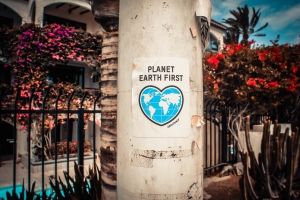Sustainable Tourism – The Green Choice
Sustainable tourism is a philosophy inspired by sustainable development and includes all forms of environmentally friendly tourism and attention to the well-being of the host populations.

Responsible tourism meet certain requirements, such as:
- Make optimum use of environmental resources by preserving essential ecological processes and contributing to the conservation of natural resources and biodiversity.
- Respect the socio-cultural authenticity of the host communities, preserve and contribute to intercultural tolerance and understanding.
- Ensure long-term sustainable economic activities by providing equitable socio-economic benefits, including stable employment and income opportunities, social services for host communities and contributing to the fight against poverty.
- Allow the tourist to live interesting experiences, while raising awareness of the impact that his trip has on the places visited.

The sustainable development of tourism has as its objective not only the fight against waste and the use of polluting materials, but proactive actions that create well-being and opportunities for the territory and requires constant control of the impact that travelers have on the local population and environment.
There are various types of sustainable tourism:
- Community tourism: It is a form of tourism in which hospitality is entirely managed by the local population.

- Slow Tourism: It consists in discovering a destination at your own pace. This movement is a real lifestyle.

- Fair tourism: Inspired by fair trade that allows a fairer remuneration of local communities.

- Participatory tourism: Reinvents hospitality by actively involving the traveller in local life.

- Ecotourism: It respects the environment and the well-being of people, is practiced exclusively in the natural environment and must be a source of sustainable funding for the host communities.

- Solidarity tourism: It creates a bond of solidarity between the traveller and the populations. A financial contribution from the traveller or tour operator is donated to local development projects.

- Agrotourism: This is sustainable tourism in agricultural environments. Its objective is to facilitate the meeting with the producer and to perpetuate the activity allowing him to diversify between visits, tastings and recreational activities.

- Humanitarian tourism: ethical and sustainable stay, which contributes to the improvement of the living conditions of local populations. Conveying knowledge and contributing to local development are all tasks that tourists are encouraged to participate in.

The aim of traveling and promoting a green choice is to limit air pollution, gas emissions, enhance the resources of the territory, protect the flora and fauna of the place.

